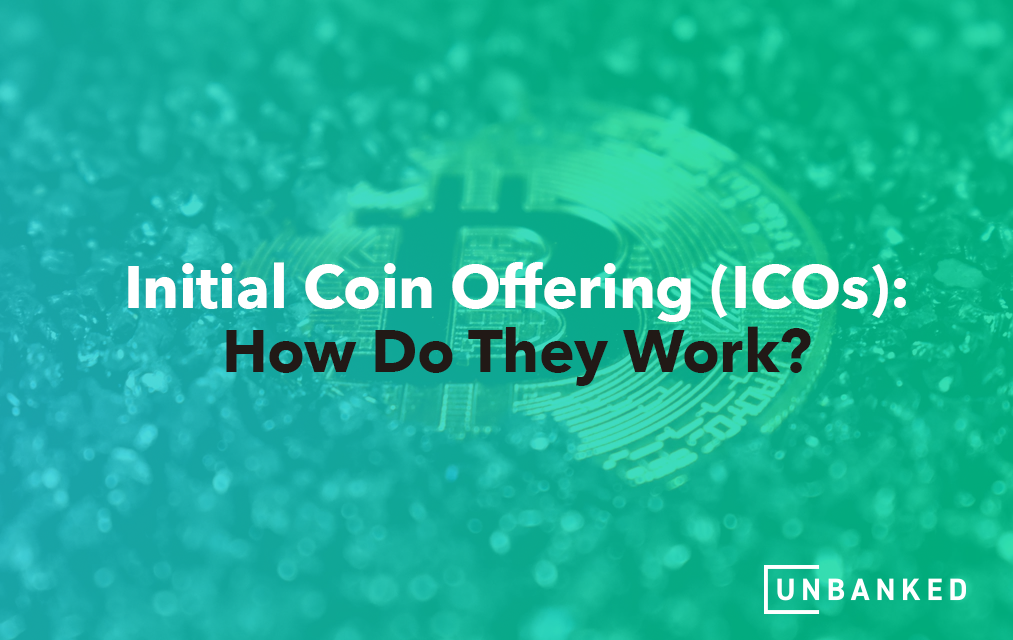Companies and startups use initial Coin Offerings (ICOs) to raise capital. Through ICO platforms, the startups provide investors with unique digital tokens (issued using blockchain technology) in exchange for their investment in that particular company or startup. Cryptocurrencies like bitcoin or ether usually purchase these unique digital tokens.
Therefore, ICOs can also be called a means of crowdfunding by creating and distributing digital tokens to investors. They are similar to initial public offerings, but they use cryptocurrencies, and investors won’t get an ownership stake in the company if they are investing through ICO platforms. The investors are betting on the prices and the circulation of the unique digital tokens to increase.
Looking to learn more about the basics of Crypto? Check out our Crypto terms every investor should know.
Types of Digital Tokens
There are two types of digital tokens that a company/startup can issue:
Utility Tokens
These tokens do not hold monetary value; instead, they provide a broader functionality to investors. They give investors access to future products and services. The buyers of such tokens can use them on the company’s platform as a form of payment. But that doesn’t mean that the investor can buy anything with a utility token, but the token holders get special access to some products. For example, say they might be able to pre-order a product months before its release.
Security Tokens
These tokens get their value from external, tradable assets like stocks or real estate. This means their value can go up and down depending on other assets. If a company issues a security token, it must be registered with the financial market authority. They are subject to federal regulations and, therefore, less susceptible to fraud and misuse. Security tokens are designated as investments; thus, a company can issue them to represent shares of that company’s stock.
Technically anyone can launch an ICO since there is little regulation concerning them in the US. As long as you can issue digital tokens and get your startup funding, there is little regulatory oversight. This is one of the reasons why many ICOs can scam people. Due to little regulation, people try to sell their idea to others and then abscond with their investment money. The US government is currently trying to regulate ICOs but not all ICOs can be regulated. Only the ICOs which qualify as security come under the ambit of regulation.
Starting Your Own ICO
If you are thinking about starting your own ICO, you must familiarize yourself with blockchain technology. Ask an expert to help you learn. Only start an ICO once you are confident enough in your business idea. To move forward with establishing your own ICO, you need a white paper, a document that states what your digital token will be and how it will be different from others in the market. This is an essential document; therefore, it should be interesting, engaging, and highly detailed. This white paper serves as a proposal for investors, telling them all the relevant information about your ICO. For example, your company’s objectives, purposes, number of digital tokens you intend to issue, what form of investment you will accept, and so on.
Then, you need to market your ICO to your target audience. Try to reach out to people who can be potentially interested in your idea. You need to plan an online market strategy. Keep in mind that the biggest social media platforms like Facebook do not allow the promotion of ICOs. So, you have to improvise – use alternative forms of social media, ask bloggers and vloggers to promote your ICO. You need to get the crypto community excited about your product, therefore, have some programmers and experts ready to answer questions about your ICO on platforms like Reddit and Twitter.
After receiving some investment, you have to offer them digital tokens you created. The investors usually expect you to provide them with special benefits for those tokens, depending on whether it is a utility or a security token.
Advantages of ICOs
Before deciding to establish your own ICO or invest in an ICO, you should know the advantages of an ICO to both investors and companies.
- Raising Money Quickly: ICOs allow companies and new startups to raise their funds more quickly than traditional means of raising investments. Companies can raise all the necessary funds right away using an ICO. This will give founders time to develop the actual product rather than worrying about fundraising. ICOs are a good source of funding for a company with few stakeholders.
- Cheaper: For companies struggling to get funding through conventional methods, ICOs are an excellent option. They make the fundraising process very inexpensive compared to the traditional sources of finance since most of the settlement and transaction expenses can be avoided. Overall, it is a simple process making it easy for early-stage companies to enter and compete in the market.
- Global Investors: Since ICO platforms are exclusively available online, any investor can access them irrespective of location. There is no restriction on who can or cannot invest in an ICO. This is very lucrative for companies located in regions with limited options of funding sources. Such companies can simply get their investors from abroad through ICOs.
- Liquid Investments: Another thing that makes ICOs attractive is the immediate liquidity of investments they offer. Usually, it takes a lot of time (even years) for investors to benefit from their investments. In the case of ICO, their investments become liquid immediately after the company issues its digital token. This makes ICOs appealing for investors as they can get an immediate return on their investments.
There are several benefits of establishing your own ICO and investing in an ICO, but you should remember that some ICOs are scamming investors. And therefore, you must be mindful before investing in an ICO. Do your research to ensure it’s a genuine company and not some scam. To know more about establishing your own ICO and investing in an ICO, read our blog.





